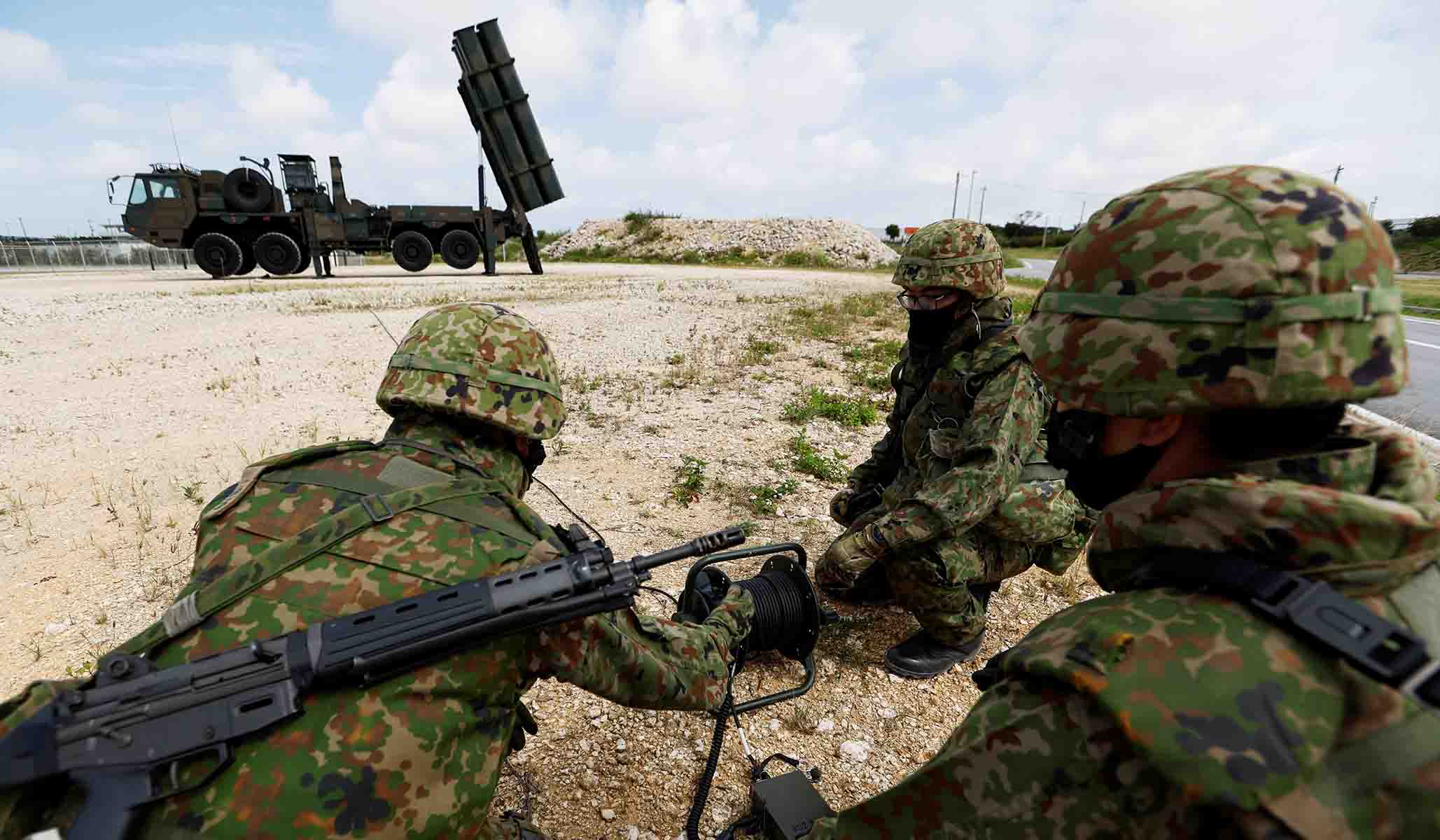


A Military in All but Name
Before the Japanese government expands its military capability to the level of a typical Western nation (“Japan Wakes Up,” Mike Watson, December 30), the Japanese people must repeal Article 9 of their constitution. The repeal would confirm that they will wage war to defend their homeland.
The lack of repeal indicates that the Japanese remain committed to pacifism even when observing a hail of foreign missiles that obliterate schools, hospitals, etc. In that case, no amount of new hardware for the Japanese military would be sufficient to subdue the foreign power.
If the Japanese successfully repeal Article 9, their government should follow up with nationalizing the Yasukuni Shrine, removing its war criminals, and changing the nearby museum to a memorial to the Japanese and non-Japanese victims of war. This last action would set the right tone for the military expansion.
Japan could then proceed to fulfill the aspiration of late prime minister Shinzo Abe: Japan becomes a normal Western country that can use its military to achieve Western objectives.
Dwight Sunada
Via email
Mike Watson responds: Mr. Sunada articulates the two most prominent American concerns about Japan: One is that our ally is too pacifistic, the other that a rearmed Japan could again inflict the horrors of World War II. In other words, are we dragging along a deadweight ally, or are we Pandora fiddling with the lid of her box?
Happily, we are neither. Mr. Sunada correctly warns about the war-renouncing Article 9 of Japan’s constitution. Prime Minister Abe tried to repeal it and had to settle for reinterpreting it instead. But despite Article 9, Japan has for decades had its Self-Defense Forces, which are a military in all but name, and the constitutional interpretation is broad enough to drive an aircraft carrier through — or in Japan’s case, a “helicopter carrier” filled with F-35 fighter jets. Even the pacifistic political Komeito party has acquiesced to the new defense buildup. The Japanese way of addressing this problem is not our way, but it is their country and not ours.
Yasukuni Shrine commemorates Japan’s war dead, including some of the most notorious criminals of World War II, and it embodies the other concern. But when I visited it, tourists and people walking their dogs outnumbered the people paying their respects. This is not a country on the verge of hypermilitarism. Moreover, though the Taiwanese bore the yoke of Japanese colonialism longer than any other people, and Southeast Asians suffered immensely during the war, they welcome the Japanese with open arms today. Who are we to tell them otherwise?
Correction: “The Long March Back” (Nate Hochman, March 6) included two quotes that were misattributed to Antonio Gramsci. The first — “In the new order, socialism will triumph by first capturing the culture via infiltration of schools, universities, churches and the media by transforming the consciousness of society” — is apocryphal. The second — emphasizing the power of “the normative ideas, values, and beliefs that become the dominant worldview of a society” — is from the sociologist Nicki Cole, who was summarizing Gramsci.
